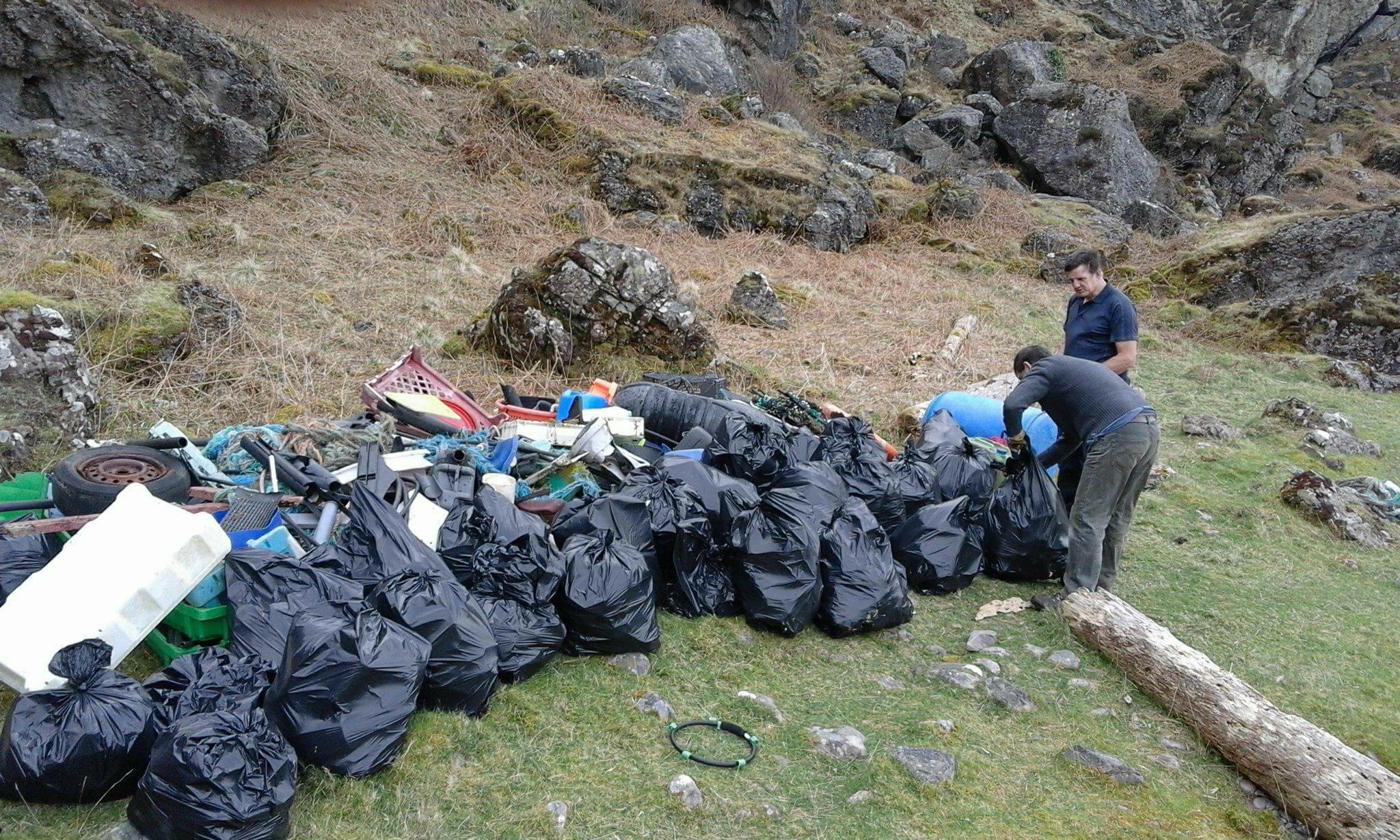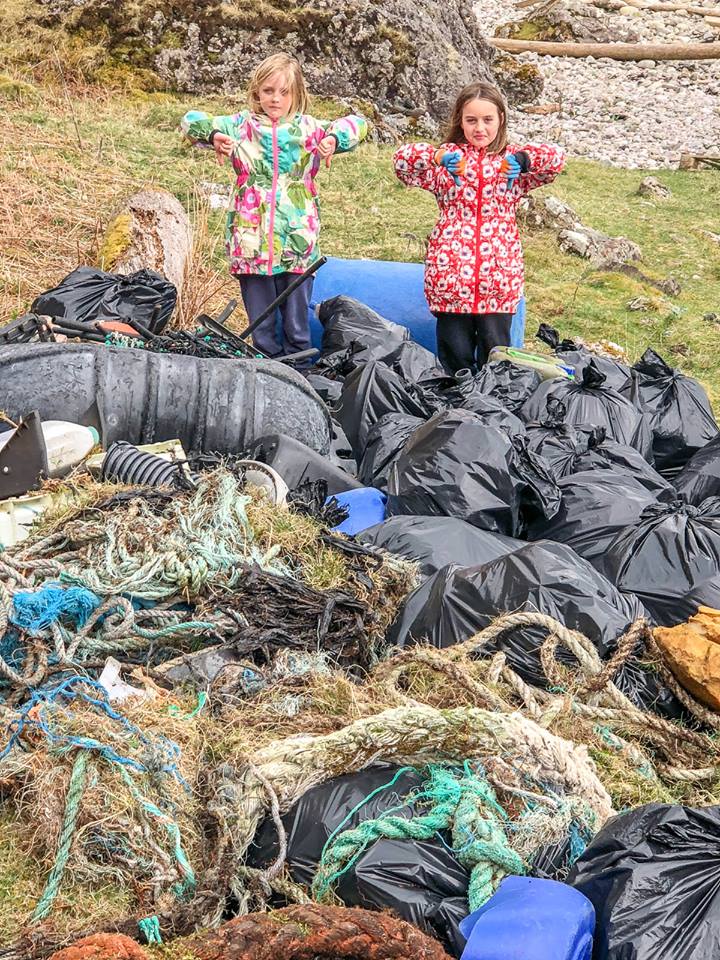A SEA cave made famous by Dr Samuel Johnson and James Boswell has had 100 bags of “monstrous” plastic rubbish removed by volunteers.
The area in and around MacKinnon’s Cave on Mull was choked by pollution including milk cartons, plastic containers and fishing lines.

The cave, in what should be one of the most pristine environments in the UK, was first measured by Johnson and Boswell in the early 1770s. The literary legends established that the cave is 500ft (152m) long, making it the longest in the Hebrides.
Sadly, the modern menace of plastic pollution has gripped even the remote, unspoiled coastline that enchanted Johnson and Boswell in the 18th Century.
But a dozen volunteers from the Mull Otter Group decided to take on the mammoth task of removing the decades-worth of plastic waste.
Starting on Sunday they collected 100 bags of rubbish and are making plans to remove the refuse by boat.

Marie Fox, who arranged the beach clean at MacKinnon’s cave, said today: “It really depresses me. I despair for the human race.
“It’s good that the problem is being talked about now, but we really have to start doing something about it.
“Litter and pollution are really big issues around here, we may be famous for scenery on Mull but we are having the same problems as other places on the coast.
“MacKinnon’s Cave is a publicised walk, and we don’t want people to go there and see all this rubbish lying around.”
The modern menace of plastic pollution at the entrance to the cave is world’s away from the condition it would have been in Johnson and Boswell’s day.
The pair visited Mull in 1773 and decided to measure the sea cave using a walking stick, lighting their route by candle light.
Dr Johnson published the first English language dictionary in 1775 after nine years of work, and Boswell was his biographer and a diarist in his own right.
The literary pair’s interest in the cave drew visitors to the breathtaking part of the island on the west coast, but now the area is plagued by mountains of rubbish washing up on the shore.
The Mull Otter Group are making great efforts to tackle the problem, and posted a series of photographs of the piles of rubbish to their Facebook page.
They captioned the post: ““The weather was kind to us yesterday and thanks to the volunteers who came we created a monstrous pile of plastic rubbish. This rubbish definitely received a big thumbs down from two of our volunteers.
“The next difficult task, with the help of Turus Mara is to move the stuff out by boat.”
Volunteers will now have to ferry the piles of fishing rope, plastic containers, tyres and other debris in small dinghy’s to a larger boat anchored off the coast.

The Turus Mara, a local tour group, have offered their largest vessel to help the volunteers, but Marie is unsure how long it will take them.
The 45-year-old added: “I’m not sure how many trips it will take us, because we will have to use smaller dinghy’s to get in and out of the beach and take it out to the boat.
“The coastline is really rocky so the bigger boat won’t be able to get close enough.”
On social media, Dawn Fotheringham said: “Wow. That’s a lot of rubbish!! We did a wee bit of shore cleansing when we were up a couple of weeks ago in the Ross of Mull. Fantastic thumbs up. Great to see the kids being involved.”
Andrea Winter added: “Fantastic thing to do just a shame it’s needed.”
Graeme Willgress commented: “What a job. Thank you.”
While Neal Breeden said simply: “Well done guys and gals, excellent work.”
Plastic drinking straws, cotton buds and other single-use plastics could be banned from sale in England next year.
It is estimated that there are 150m tonnes of plastic in the world’s oceans, and over 100,000 sea animals die from eating or getting tangled in plastic waste.
A consultation on single-use plastics will start later this year, and a ban could be enforced as early as next year.
The Scottish government are already planning to ban the sale and manufacture of plastic stemmed cotton buds – which will cut the country’s marine plastic pollution in half.

